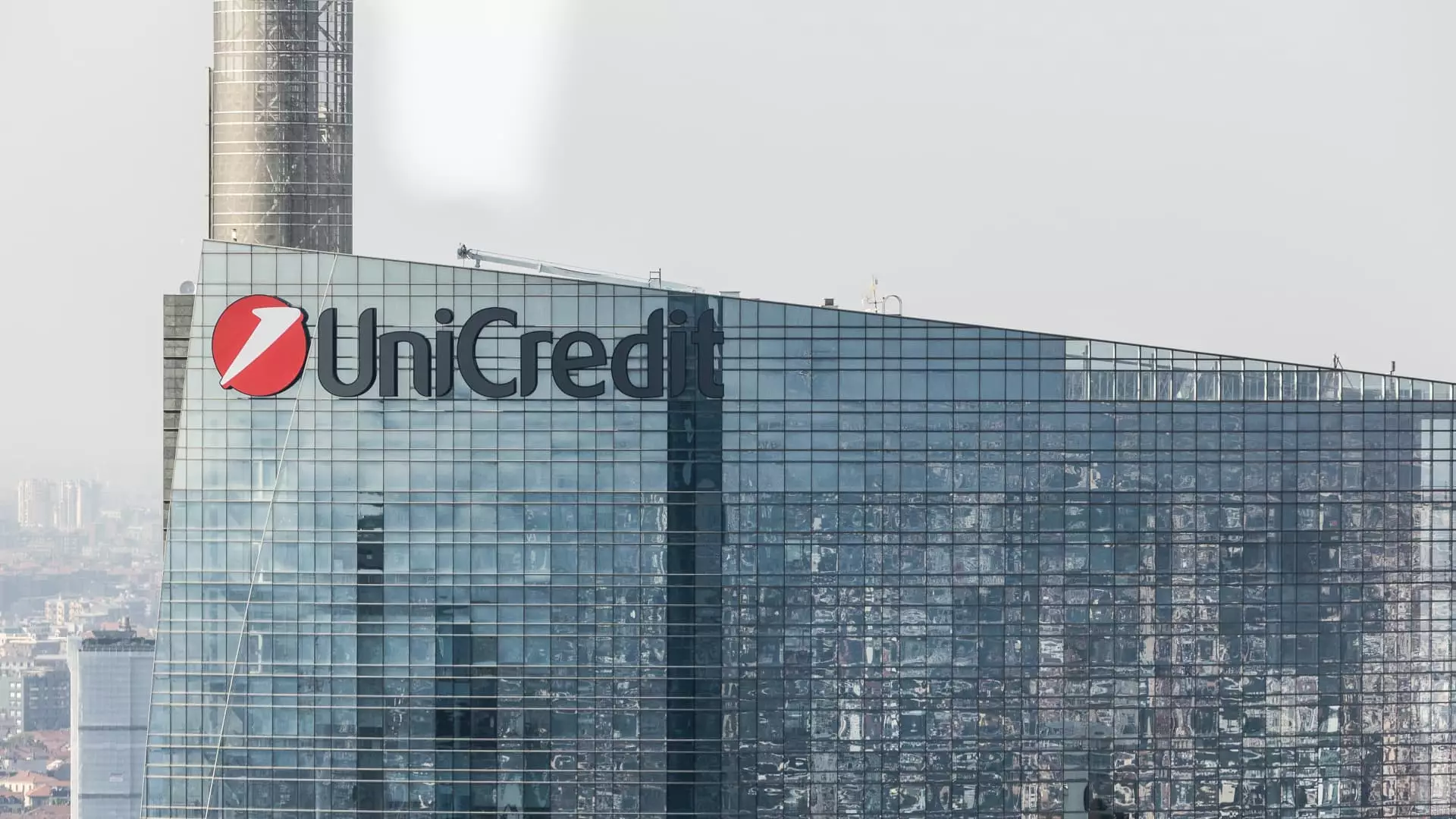In a financial landscape marked by uncertainty, UniCredit, Italy’s second-largest lender, has shown resilience in reporting its fourth-quarter results. The bank’s latest earnings reveal a net profit of €1.969 billion ($2.03 billion), exceeding analyst expectations. This marks a critical moment for UniCredit as it navigates both opportunities and hurdles in a rapidly evolving marketplace.
UniCredit’s fourth-quarter performance highlights its robust capabilities in generating revenue despite challenges. The bank reported revenues totaling €6 billion, surpassing the anticipated €5.898 billion. This achievement underscores UniCredit’s efficiency and strategic positioning, which have allowed it to weather the testy economic environment better than many competitors. However, while the figures look promising at first glance, a deeper look raises concerns about the sustainability of these results.
The return on tangible equity (RoTE) at 11.5% represents a significant decrease from 19.7% in the previous quarter, suggesting that while profits surged, the rate of return has been affected considerably. Additionally, the bank’s common equity tier 1 (CET1) ratio slightly dipped to 15.9%, reflecting the pressures of operational costs, which increased by 9.5% quarter-on-quarter, reaching €2.5 billion. These fluctuations signal an urgent need for UniCredit to maintain a careful balance between growth and efficiency.
Future Projections: Navigating Declines
Despite the robust fourth-quarter results, UniCredit’s guidance for 2025 presents a more tempered outlook, projecting a slight dip in revenues to fall below last year’s €24.8 billion. Analysts are particularly concerned about a decline in net interest income, which encumbers lenders as market conditions become more competitive. This decrease in profitability from interest-related earnings could impact the bank’s long-term growth trajectory.
Moreover, the European Central Bank has prompted UniCredit to rethink its business strategies, especially concerning its operations in Russia, amid geopolitical tensions stemming from the war in Ukraine. The bank foresees a “further compression” of earnings in this area, which is further compounded by its anticipated “moderate decline” in net interest income. Nonetheless, UniCredit does aim to bolster its fee income, projecting mid-single-digit percentage growth in this area, which could potentially offset some of the expected revenue declines.
In the face of these challenges, UniCredit has committed to enhancing shareholder returns, raising its cash dividend payout guidance to 50% of net profit for 2025, up from 40% in 2024. This approach is likely to appeal to investors, but it requires solid operational performance to avoid straining the bank’s capital resources. CEO Andrea Orcel emphasizes the ambition to position UniCredit as a leader in European banking while maintaining a careful watch on financial discipline and accountability.
However, the ambitious returns come with the weight of ongoing market pressures and competition. There are risks involved in such assertive shareholder strategies, especially if profits and operational efficiency do not align closely with these expectations.
Strategic Growth: Mergers and Acquisitions on the Horizon
Looking forward, UniCredit is exploring inorganic growth opportunities through strategic acquisitions. The bank’s recent forays into strengthening its position — including a stake in Germany’s Commerzbank and a potential offer for Banco BPM — indicate a bold approach to expansion. However, these plans have faced resistance both domestically and internationally.
The German government has critiqued UniCredit’s “very aggressive” bid for Commerzbank, calling for a more transparent engagement, while regulatory frameworks in Italy may complicate domestic negotiations. Furthermore, the application of golden powers legislation allows the Italian government to impose conditions or block significant corporate takeovers, adding layers of complexity to UniCredit’s aspirations for growth.
UniCredit stands at a crucial juncture, balancing strong financial performance with the need for cautious growth strategies amidst external pressures. The bank’s ability to navigate the intricate dynamics of the banking sector—while ensuring shareholder interests and regulatory compliance—will greatly influence its long-term success. As UniCredit moves forward with its plans to expand and solidify its market position, the eyes of investors and competitors will remain sharply focused on how it manages these dual objectives in a landscape defined by volatility and change. The task ahead won’t be easy, but with careful planning and strategic execution, UniCredit has the tools to emerge stronger.

